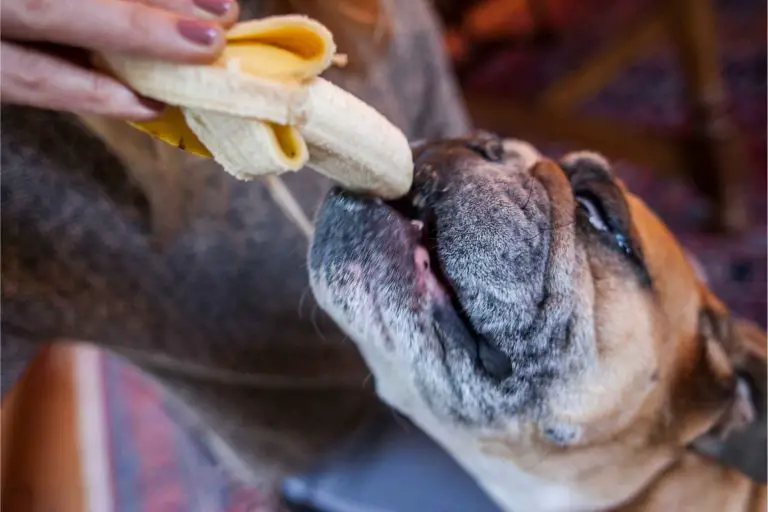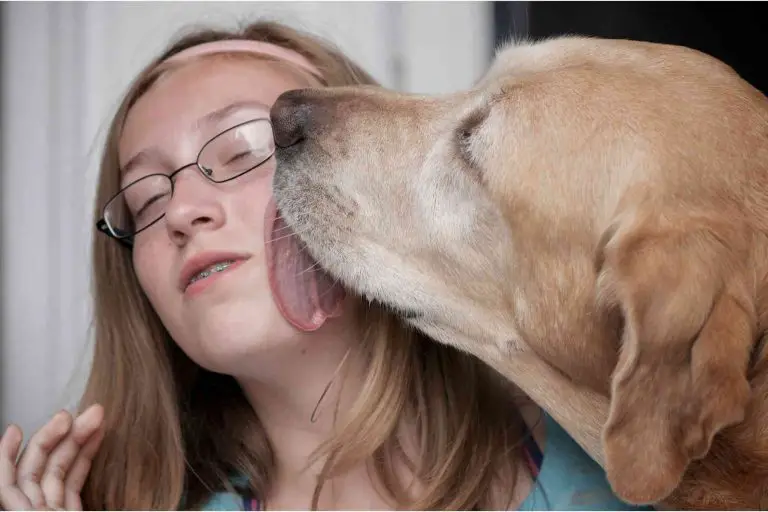Why Does My Dog Scratch My Bed Sheets?

Your dog may be scratching your bedsheets for numerous reasons, including denning behavior, comfort, nesting behavior, scent-marking, anxiety, and physical discomfort.
If you want to get to the bottom of your dog’s sheet scratching behavior, pay attention to the circumstances and any other behaviors your dog may be exhibiting.
For example, is your dog drooling and panting heavily? These symptoms could indicate anxiety as a source of their behavior. Below, we will look at behavior and symptoms that explain why your dog has become a career bed maker!
Denning Behavior
What Is “Denning”?
Denning describes when a dog digs and scratches its bedding before circling and laying down.
A Den Animal Vs. Denning Behavior
Now, it is crucial not to confuse something being a “den animal” with something that conducts “denning behavior.”
A “den animal” is an animal that creates a den, “burrow,” or a hole in the ground where they can live or seek shelter from predators and the elements.
“Denning behavior” is the act of digging and scratching before circling and laying down.
Dogs are animals that carry out “denning behavior,” but not all canine species are denning animals.
Why Do Dogs Perform Denning Behavior?
Denning is an instinctive behavior that has its roots in our dog’s ancestors. Take, for example, our dog’s wolf ancestors.
Before lying down to rest, a wild wolf would paw and dig at the ground to create a flatter or more even sleeping spot; the wolf then circles 360° to check for predators and to determine in which direction to sleep. This spinning ensures that – even in a sleep stupor – they are prepared should a predator approach.
Denning behavior is a survival instinct, and as strong as that instinct was in our dog’s ancestors, it still lingers in our dog’s DNA today.
Comfort
Another reason that your dog may scratch your bed sheets is comfort! Have you ever laid down on top of your bedcovers when you have not made your bed?
As you lay there, you can still feel the lumps and bumps in the blankets underneath your back. The same is true for our dogs when they lay down.
Your dog will paw (this often looks like scratching) at your bed covers to flatten out lumps and bumps or to spread out a blanket before lying down to take a nap!
What is the Difference Between Denning and Scratching Bedding For Comfort?
Denning is an instinctual behavior that is hardcoded into our dog’s DNA. Denning is a subconscious survival instinct for which domestic dogs have little need.
When our dogs scratch at bedding for comfort, however, they perform a voluntary action that dogs do to create a more comfortable sleeping surface.
Nesting Behavior
Nesting behavior is visible across many species, and pregnant females do it as they prepare for the birth of their offspring.
Nesting ensures that a pregnant female is:
- Comfortable during labor and after her offspring arrive.
- In control of her environment during birthing.
- In a safe location that is suitable for the arrival of the offspring.
For wild dogs and wolves, nesting helps the female improve the odds of the female’s survival and the survival of her pups by keeping them safe from predators and making sure the birthing area is warm, dry, and comfortable.
In domesticated dogs, nesting behavior is a surefire way to tell that your pregnant bitch is very close to being in active labor! Other signs you may see during this time include:
- Visible contractions.
- Panting.
- Restless behavior.
- Anorexia.
- Behavioral changes – becoming increasingly clingy or more reclusive.
- Increased urination.
If your pregnant dog is nesting, be wary of any signals of complicated labor, and if needed, call your veterinarian. Signs of complicated labor may include:
- A slow down in labor where the bitch is still having contractions. (DO NOT wait more than 40 minutes of straining before calling your vet for assistance.)
- A span of two to three hours of active labor after the previous puppy was born with no more puppies birthed.
- Any symptoms of being too tired to continue birthing.
- Any signs of distress in the birthing bitch.
Scent Marking
Scent marking is another reason dogs scratch at sheets.
Dogs have something called merocrine glands on their paw pads. When your dog is hot, these glands allow your dog to sweat through their paws to cool down.
As your dog sweats, their sweat combines with bacteria on their feet and creates an odor that is unique to your dog. You may recognize a hint of corn chips in this scent!
When your dog scratches your bedsheets, they spread their unique scent on the sheets, and it serves as a means of “marking territory.”
Dogs most often scent mark in this way when they live in a household with other pets, and they do it to keep the other animals off “their spot.” Other signs of territoriality that you may observe include
- Displays of dominance – for example, the more dominant dog standing over the other (usually with their genitals close to the face of the more submissive dog.)
- Urination to mark territory.
- Jealous behavior like guarding or “claiming” people.
- Aggression like biting, snapping, and growling from the more dominant dog toward the more submissive.
Not all scent marking is a territorial or a dominance issue; however, scent-marking can also be a way to communicate with other “animals.” Think of this like your dog’s calling card that reads: “Rover was here.”
Anxiety
Another reason that your dog may be scratching your bed sheets is anxiety. Like humans, our dogs experience the same flood of negative feelings and uncertainty when they are anxious.
These anxious feelings can lead to destructive, obsessive, or self-soothing behaviors like repeatedly scratching at bed sheets, barking, trembling, crying, drooling, or hiding as a means of coping.
If you think that your dog is scratching at your bedsheets due to anxiety, be sure to pay attention to when your dog does this behavior. Is there a particular event or stimulus that sets this behavior off? Only once you know what causes your dog’s anxiety can you begin to collaborate with a behavioral trainer to lessen your dog’s fears.
Physical Discomfort
Lastly, you may notice your dog scratching at your bedsheets when they are experiencing physical discomfort. For example, if your dog has an upset stomach, their abdomen may look distended or feel painful, and your dog may think that this is due to where they are resting and try to shift the bedding.
If you think that your dog is in physical discomfort, look for other symptoms such as:
- Panting.
- Pacing.
- Drooling.
- Crying.
- Physical changes such as limping or a distended abdomen.
It is a good idea to check in with your vet or emergency vet to help your dog feel comfortable ASAP if they are so uncomfortable that they are scratching at your bedsheets!
Conclusion / Summary
Dogs scratch at their bedding (and our bedsheets) for many reasons. Some of these reasons are innate, some behavioral, and some are a means of transference. For most dogs, though, this scratching is simply a vestigial behavior inherited from their wild ancestors.






